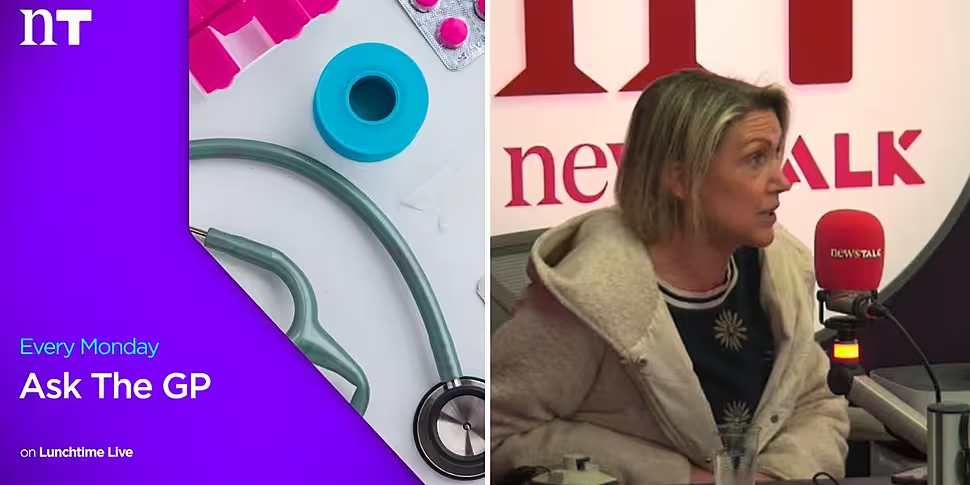People with a runny nose should be able to go and get their flu vaccine, but not if they're "actively sick".
That’s according to Dr Nina Byrnes in this week's 'Ask the GP' on Lunchtime Live.
One listener has said they have a head cold but are due to get their flu vaccine this week.
"In theory you can't be unwell, but unwell I suppose is a broad term," she said.
"If you've a bit of a runny nose but you're perfectly well otherwise, absolutely you can get the vaccines.
"If you're actively sick - sore throat, certainly if you've a temperature over 38 - probably put it off for a few days.
"A lot of people will have a runny nose all winter... and that is not a reason to avoid your flu vaccine."
'Higher risk of flu'
Dr Byrnes said everyone over 65 is entitled to the flu vaccine, as are children aged two to 12.
"After that it's if you have medical conditions that put you at higher risk of flu," she said.
"It's also important that people who live with those people who at higher risk of flu also get vaccinated.
"There are very few people who don't come in under the umbrella of needing a flu vaccine, either by their association with someone who's high risk or being high risk themselves."
Hair loss
One listener aged in her 60s said her hair is falling out "in handfuls" every time she brushes or washes it.
Dr Byrnes said this condition can be caused by a wide range of factors.
"Female hair loss is something we see an awful lot about," she said.
"A lot of women are very embarrassed by it, and they don't know whether to go to the doctor and they don't talk to each other about it.
"So many factors can play into hair loss; it can be literally something on your scalp.
"You could have a dermatitis of your scalp or an irritation. Hormones can play a role, there's no doubt about that."
Dr Byrnes said vitamin deficiencies, an underactive thyroid and stress can also contribute to hair loss.
"So, it is absolutely a very valid symptom to go to your GP about - have a full consultation about it, don't squeeze it in on top of something else," she said.
"It deserves it's own time, and there are a number of tests we can do.
"The good news is we have more and more treatments out there we can use.
"There's medication that can help slow down hair loss, there are treatments, Regain - which is the treatment that men use - is also used in women with good effect.
"So, this sounds like something you really need to talk to your doctor about."
Red spot rash
Another listener said their five-week-old baby has a red spot rash around their neck and face in the past week.
Dr Byrnes said a rash can be quite common in newborns.
"There's a rash called millia that's incredibly common in the first few weeks after a baby is born," she said.
"It usually appears around four to six weeks and is gone by about eight or nine weeks in most babies.
"Some people refer to it as infantile acne, because it can look almost like spots, you can get little red dots and even sometimes white little pustules on them.
"It's usually absolutely nothing to worry about.
"You'll be going for a six week check for the baby, so just important to chat to the doctors about it then.
"If the baby is otherwise well, it doesn't sound like this is something you need to go to the GP about today," she added.









